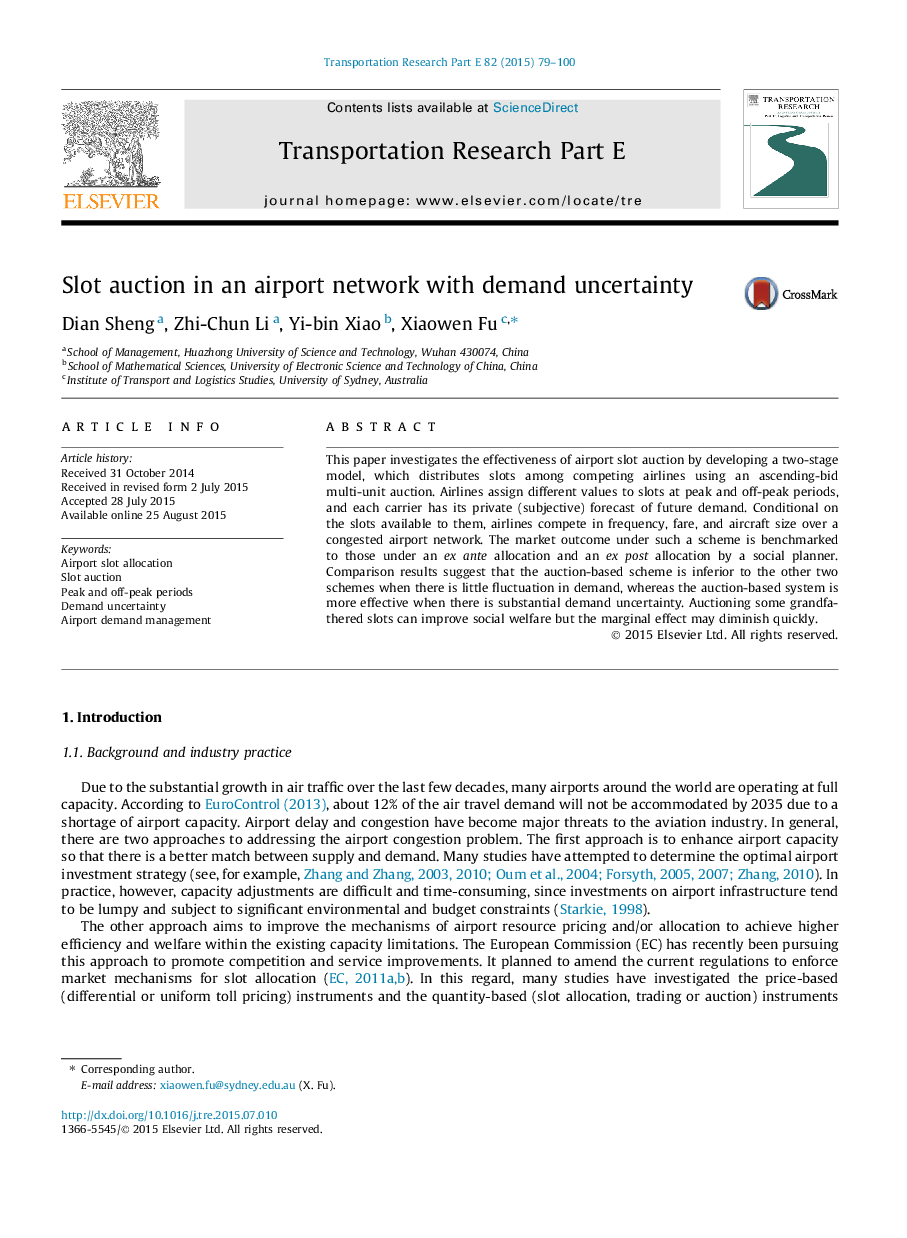| کد مقاله | کد نشریه | سال انتشار | مقاله انگلیسی | نسخه تمام متن |
|---|---|---|---|---|
| 1023076 | 1483008 | 2015 | 22 صفحه PDF | دانلود رایگان |
• We model the effects of airport slot auction to airlines competing over a network.
• Slot auction is benchmarked to ex ante and ex post allocations by a social planner.
• Slot auction is more efficient under substantial demand uncertainty.
• Social planner allocation is more efficient if demand uncertainty is low.
• Auctioning grandfathered slots can improve social welfare to limited extent.
This paper investigates the effectiveness of airport slot auction by developing a two-stage model, which distributes slots among competing airlines using an ascending-bid multi-unit auction. Airlines assign different values to slots at peak and off-peak periods, and each carrier has its private (subjective) forecast of future demand. Conditional on the slots available to them, airlines compete in frequency, fare, and aircraft size over a congested airport network. The market outcome under such a scheme is benchmarked to those under an ex ante allocation and an ex post allocation by a social planner. Comparison results suggest that the auction-based scheme is inferior to the other two schemes when there is little fluctuation in demand, whereas the auction-based system is more effective when there is substantial demand uncertainty. Auctioning some grandfathered slots can improve social welfare but the marginal effect may diminish quickly.
Journal: Transportation Research Part E: Logistics and Transportation Review - Volume 82, October 2015, Pages 79–100
